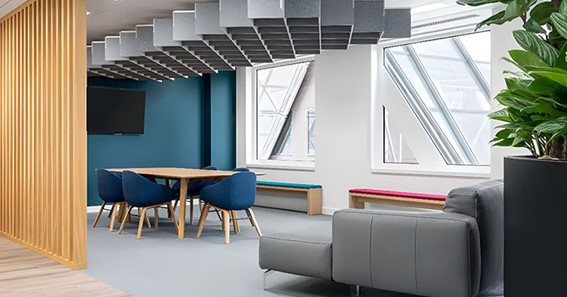Creating a peaceful and soundproof environment in both your home and business is essential for productivity and well-being. Whether you’re trying to reduce distractions in the workplace or want a quieter space at home, soundproofing can make a significant difference. Here, we explore some distinct ways to achieve tranquility by minimizing outside noise. Let’s dive into some practical solutions to create a peaceful environment.
Choose the Right Soundproof Curtains
One overlooked but effective method to minimize outside noise is by installing soundproof curtains. These curtains are designed with dense materials that block out sound waves, making them an excellent addition to any room where noise reduction is a priority. According to a guide on Snorable.org, selecting the appropriate soundproof curtains involves considering factors like thickness, material, and size. The right curtains can reduce noise levels significantly, especially in rooms with large windows or doors that let in a lot of external noise.
Soundproof curtains not only serve as a functional sound barrier but also enhance the aesthetic appeal of a room. They come in various styles and colors, allowing you to match them with your existing decor. When choosing soundproof curtains, it’s essential to measure your windows or doors accurately to ensure a perfect fit. Also, look for curtains that offer thermal insulation as well, which can provide added benefits like energy savings.
Install an Outdoor Sound Barrier
When it comes to soundproofing, the outside environment plays a crucial role, especially for businesses located in noisy areas or homes near busy streets. One of the most effective solutions is to install an outdoor sound barrier. These barriers are designed to block or deflect sound waves. This can reduce the amount of noise that reaches your property. Outdoor sound barriers can be a game-changer for creating a peaceful environment by acting as a shield against external noise sources.
These barriers not only help to reduce noise but they also add an extra layer of privacy to your space. These barriers can be made from various materials, including wood, concrete, or specialized acoustic materials that are specifically designed to absorb sound. When planning to install an outdoor sound barrier, it’s essential to consider the height and placement for maximum effectiveness. By strategically placing these barriers around your property, you can create a more serene and private environment, free from the distractions of outside noise.
Seal Open Gaps and Cracks in Windows and Doors
Even with the best soundproofing measures in place, sound can still find its way into your home or business through small gaps and cracks around windows and doors. These seemingly insignificant openings can allow a surprising amount of noise to penetrate your space. To create a truly peaceful environment, it’s crucial to seal these gaps effectively.
Weatherstripping is one of the most common and affordable methods to seal gaps around windows and doors. It involves applying a strip of foam, rubber, or silicone, to the edges of windows and doors to prevent air and sound from passing through. In addition to reducing noise, weatherstripping also improves energy efficiency by preventing drafts, which can help lower your heating and cooling costs.
For more significant gaps or cracks, consider using acoustic caulk. Unlike regular caulk, acoustic caulk remains flexible after it dries, which helps it absorb sound vibrations and prevent them from passing through the walls. It’s particularly effective around window frames, door frames, and any other areas where sound might leak in.
Add Rugs and Carpets to Soften Noise
Hard surfaces like hardwood floors, tile, and concrete can reflect sound, making a room feel louder and more echoey. Adding soft materials like rugs and carpets can help absorb sound and reduce the noise levels in your space. This simple addition not only makes your home or business more peaceful but also adds warmth and comfort to the environment.
When selecting rugs or carpets, consider their thickness and material. Thicker, plush rugs with dense fibers are more effective at absorbing sound than thin, flat ones. Area rugs are particularly useful in large rooms or open-plan spaces, where they can help break up the sound and prevent it from bouncing around the room.
Layering rugs is another technique to enhance sound absorption. For example, you can place a large area rug over a carpeted floor to add an extra layer of soundproofing. In addition to absorbing sound, rugs and carpets also provide a cozy, inviting atmosphere that can make your home or business feel more welcoming.
Rugs and carpets are not only functional but also versatile in terms of design. With plenty of colors, patterns, and textures available, you can easily find beautiful options that complement your existing decor while contributing to a quieter environment.






